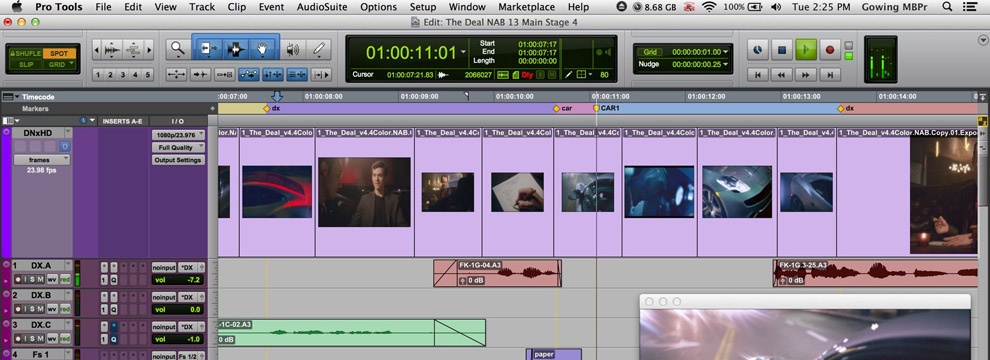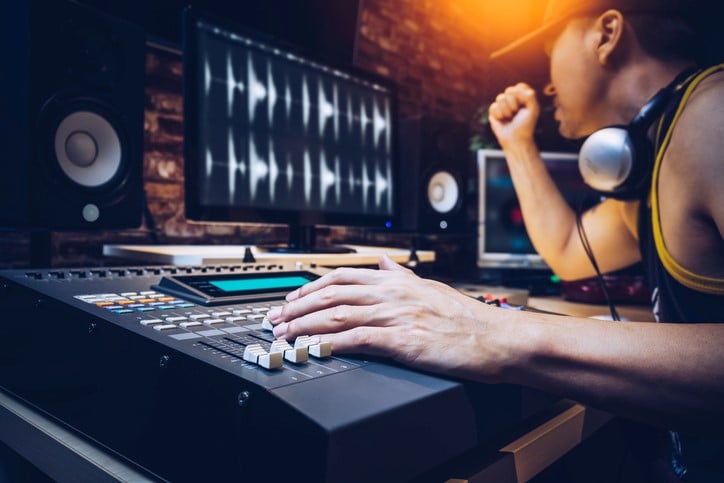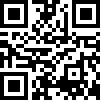| Course Number |
Course Title |
Credits |
| RCD100 |
|
Pro Tools 101
The material in this course is focused to cover the basic principles a student needs to understand to complete a Pro Tools project, from initial setup to final mixdown. Whether the project involves recording live instruments, preparing MIDI sequences for virtual instruments, looping and beat-matching audio files, or editing notation and preparing scores, Pro Tools Native 101 will teach the student the steps required to succeed using the most up-to-date Pro Tools software. Included at the back of the course book is a DVD-ROM containing media files for the Pro Tools 101 exercises and hands-on projects. The DVD also contains various Pro Tools videos and video tutorials. The material presented in the 100-series coursework is designed to prepare students for Avid’s Pro Tools User Certification exam. |
2 |
| RCD101 |
|
Critical Listening Skills
This course will cover listening skills in relation to music production, from tracking to mixing a final product. Topics will include sound level perception, frequency perception, frequency band limitations, frequency response irregularities, tone quality perception, distortion, reverberation and ambience, and tonal colorations. |
1 |
| RCD110 |
|
Basic Keyboarding Skills
In this course, the students are introduced to the keyboard layout, playing techniques and scales and chords. The course curriculum progresses to include all aspects necessary for proper keyboard operation for the MIDI production courses. |
2 |
| RCD120 |
|
Music Theory Basics
This course Introduces students to the basic elements of sound and pitch, rhythm and meter, scales and key signatures, chords and progressions and other aspects needed to understand basic music concepts from a technical perspective. |
2 |
| RCD130 |
|
MIDI: Synthesis & Sequencing
This course is an introduction to the MIDI language, using Ableton Live and Native Instrumentâs Komplete Ultimate Bundle as the vessel of instruction. This course demonstrates core concepts such as the basic MIDI environment, sequencer, mixer, instruments, effects processors and automation, and lays the foundation for the next level of MIDI instruction. |
4 |
| RCD140 |
|
Introduction to Audio Production I
This course gives the student an introduction and a strong foundation to audio production techniques including an introduction to analog recording history, physical properties of sound, basic microphone types, recording environments, mono & stereo miking as well as basic analog signal flow & analog signal processing including equalization and dynamic processing techniques. |
3 |
| RCD150 |
|
Skills Lab
This lab course is designed to help the student gain awareness of “soft skills” such as behavior, habits, work ethic, etc., in a fun and engaging way. Students will complete the course with a better understanding of their own strengths and areas in need of improvement. Students will gain tools to help them succeed in their academics and beyond. |
1 |
| RCD200 |
|
Pro Tools 110
This course is an introduction to Pro Tools | Native covering the basic Pro Tools principles, giving you what you need to complete a Pro Tools project, from initial set up to final mixdown. The course will continue into advanced Pro Tools basics covering all the key concepts and skills needed to operate a Pro Tools system. Students in good standing will have the option to take certification exams upon course completion. Prerequisite: Introduction to Audio Production; Pro Tools | Native 101 (RCD 100). |
2 |
| RCD205 |
|
Studio Interconnect Basics
This class will cover the basics of electronics, measurement tools, cabling and soldering basics, wherein the students will produce all cable types commonly found in professional studios. |
2 |
| RCD220 |
|
Studio Acoustics Basics
This course expands upon the basic principles of acoustics in recording studio environments including analysis and measurement of acoustic related issues. Students will learn various solutions concerning room acoustic treatment, concert halls, and recording studio environments. Prerequisite: Critical Listening Skills RCD 101 |
1 |
| RCD231 |
|
MIDI: Sampling & Composition
This course builds on the previous MIDI Production course, introducing concepts such as sound and timbre, tone production, and sampling techniques. It also covers audio for video, composing for picture, advanced tempo mapping, composing cues and MIDI orchestration adding acoustic instruments to MIDI recordings. Prerequisite: MIDI: Synthesis and Sequencing and Music Theory Basics required. |
2 |
| RCD240 |
|
Introduction to Audio Production II
This course gives the student a more advanced introduction and foundation to audio production techniques including principles of analog & digital audio production and recording and data storage and play back media for digital audio formats. The student will gain an advaned understanding of large format analog console signal flow, time-based processors and an introduction to plug-in processing.
Prerequisite: Introduction to Audio Production I. |
3 |
| RCD255 |
|
Applied Computing Basics
This class covers the basics of computer components and software essential to maintenance and use in studio applications. While the information in this course is universally applicable, it retains a strong focus on the Mac OS X® computing platform, which is the industry-standard operating system for professional digital media. |
2 |
| RCD300 |
|
Pro Tools 201
This coursework covers the core concepts and skills a student needs to operate an Avid Pro Tools HD system in a professional studio environment. The main topics in this course are followed by exercises that take the student step-by-step through the Pro Tools functions that student needs to know. The material presented in this course provides the foundation for later 200-series Pro Tools courses, including Pro Tools 210M: Music Production Techniques and Pro Tools 210P: Post Production Techniques.
Prerequisite: Pro Tools | Native 101 and 110 (RCD 100 + RCD 200). |
2 |
| RCD320 |
|
Electronic Music Production
In this course, students build on basics learned in their first two levels. They expand their knowledge of topics including the following: synchronization, specifically syncing external sequencers to digital audio workstations (D.A.Wâs). Multi-track recording will occur both from external midi instruments (i.e. keyboards, synths, drum machines & sound modules) and from virtual/software instruments using Ableton and Pro Tools. Students will explore transferring audio produced or recorded on one D.A.W. platform to another. They will use the file transfer protocol to send and receive sessions, and investigate advanced midi functions including program change, midi controllers and using D.A.Wâs to control external midi instruments. Students will gain a broad understanding of the tools, recording techniques and skills needed to successfully produce music and audio in the urban market.
Prerequisite: MIDI: Sampling and Composition required. |
4 |
| RCD330 |
|
DAW Editing and Processing
This course covers the more vital tools & processes of audio editing used in the industry by musicians, engineers, producers and sound designers. Subjects range from integrated functions built in to popular D.A.W.s, to third-party softwares from companies like Antares, Celemony, Wavemachine Labs, SynchroArts, & many more.
Prerequisite: Pro Tools | Native required 101 and 110 required (RCD 100 + RCD 200). |
2 |
| RCD340 |
|
Introduction to Music Production
This course offers hands on experience from the beginning to end of an actual music production inside AIMM studios. The course moves the student through all stages of a music production from planning, to tracking demos, cutting basics, overdubs, vocal production, mixing & mastering. In each phase, students will learn a professional approach along with cutting edge techniques to utilize. In class, students will get to go through an actual music production that we handle as a whole with real artists that work with us in our studios. Then, individually during their lab times, they will work with their own music production project in which they are encouraged to utilize AIMM studios and musicians.
Prerequisite: Pro Tools | Native 101 and 110 required (RCD 100 + RCD 200) required. |
4 |
| RCD410 |
|
Science & Art of Mastering
This course will cover an overview of concepts, techniques, equipment and environments used in the process of mastering a record. It will cover the aspects of mastering while outlining the differences between a mixing engineer and mastering engineer. Guest lecturers such as Rodney Mills will add to the class instruction. |
1 |
| RCD430 |
|
Music Business
Students will learn about the music business through a series of seminars covering copyrights, entertainment agency contacts, trademark/service mark, resume creation, tax deductions, artist management agreement and the changing record industry, performing rights organizations, demo and pro-tape kit creation and health and safety of engineering industry. |
1 |
| RCD460 |
|
Intro to Audio Post Production
In this course, Students will use the Pro Tools application to learn the fundamentals of audio post, learning about Time Code, Synchronization, Sound Design and Mixing for Picture. In class students will work hands on with actual post projects which include commercially released and licensed short films, radio and television commercials. They will obtain a wide range of skill sets including sound design, ADR, workflow and delivery standards and experience what it's like to work in post audio and understand the skills necessary to succeed in today's professional audio market.
Prerequisite: Pro Tools | HD 201 (RCD 300). Corequisite: Pro Tools | HD 210 (RCD 400). |
4 |
| Number of Recording Technical Credits Required |
45 |









